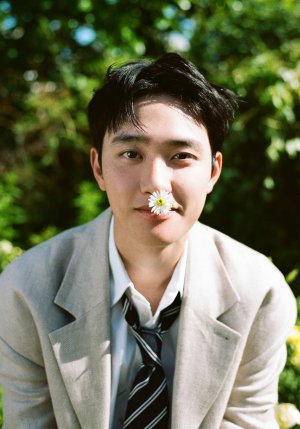Deze recentie kan spoilers bevatten
Trauma Cleaners — their job, life, and trauma
Had anyone asked me a few weeks ago, before I started watching Move to Heaven, I wouldn’t be so aware on the life of trauma cleaners. Regardless whether it’s a drama or real life, trauma cleaners must endure creepy scenes over a pressuring environment. Constantly moving their car to not be seen, closing the shades while working, are two of many other environment’s pressuring requests. Additionally, it is obligatory for the trauma cleaners (at least in this series) to “deliver” messages from the deceased and their loved stuffs handed in special yellow box. Move To Heaven also allows viewers to have a glance on the life of our hero whom has an Asperger Syndrome and recently-deceased only parent. Hold on, that’s a lot already. Are we in for a journey with worthwhile tears? Honestly, this is more than that. As compelling as it sounds, the series continuously steers our emotions on every single episode, making no room for boredom.
Move to Heaven is absolutely one of a kind drama. The peculiar premise lived up to its expectations as it consistently delivered meaningful slice of life-like narrative. The plot in general is well-connected to each other although some might need reminders to subtle details (like the female detective at the last episode). The dynamics have a good portion of everything. They didn’t make it depressing, or too funny, or too angsty. Everything is well-balanced to one another.
The trauma cleaning subplots (the deceased stories) were crafted in poking criticisms of the society coated with heart-wrenching stories. People did not realize how precious their loved ones actually is until those valued memories of them transformed into regrets. Distinctive arguments shape-shifted into glitched unrepairable tape constantly repeating on the living’s head. This series helped us learn to respectfully love people as who they are—whether they may be bothersome, having different perspectives, or in a contrasting social class.
Onto our main characters, I would like to applaud the writers once again for conveying Han Geuru (and his surrounding)’s stories with countless heartwarming aspects. As we have already known, Han Geuru had been living a struggling life after his father’s passing, only for his past to be way more harsh than we could have ever imagined. However, Geuru wasn’t really perceptive in terms of emotions, making him a strong individual that kept moving forward. Geuru mostly carried the trauma cleaning service with his extra attention to details. His extremely-observant nature pushed Move to Heaven into having detective-like journey. Throughout the series, the 20 year-old boy had a fantastic character arc (emphasis on letting Father go). Shoutout to Tang Junsang for portraying Han Geuru effortlessly.
Cho Sanggu had lived a contrasting life. Although his contrasting attitude may be seen as bothersome, his character development is perfect by growing fondly of Geuru (really love their chemistry). Sanggu also has a deep trauma that made him held grudges in the past. Not only about his paternal brother but also his “hoobae” in boxing. Eventually, this series helped him overcame those with strings of occasional events (hint: Amusement Park and Train Station). Parts of Sanggu’s stories might have appeared on another series yet it comes handy overall. The supporting characters did not really have strong plots or arcs but they were supporting for a reason. My only criticism would be the lack of Namu’s family stories (and her past) as viewers never get to see what happened inside her house. On the other hand, Namu’s character balanced the main two perfectly.
As Move To Heaven is an original Netflix series, I always found them to be different with cable or free-to-air dramas. Move To Heaven doesn’t necessarily felt like “another” kdrama at all, it stands out. I am personally a frequent Kdrama viewer (on top of a Kpop fan) and always subtly annoyed with the same sets being used in multiple series, but this is not the case here. Move to Heaven explores many locations that I never or barely saw on other Kdramas. Notably, they also use a different approach when it comes to cinematography. Furthermore, the VFX team did an outstanding job especially in visualizing Geuru’s attention to details. I always love every moments when all those stuffs in the yellow box flew above Geuru’s head, aligned, with him trying to crack a code. Every episode has a decent length between 40-60 minutes and far from being formulaic (a problem that usually occurs in “another” kdrama). Move To Heaven’s production team really paid attention to details and it paid off. Other than one thing, there’s no such accommodating or memorable OST here.
On a final note, Move to Heaven is a new magnum opus within the new series being released. Everything about this drama is perfectly well-balanced of each other—whether it be the plot, characters, or supporting elements in general. All being well for Season 2 to be picked up soon (in the same or better quality cause we don't want a mess like the other Netflix original series *coughs* Love Alarm *coughs*). We need more episodes as 10 of it is certainly too short!
Move to Heaven is absolutely one of a kind drama. The peculiar premise lived up to its expectations as it consistently delivered meaningful slice of life-like narrative. The plot in general is well-connected to each other although some might need reminders to subtle details (like the female detective at the last episode). The dynamics have a good portion of everything. They didn’t make it depressing, or too funny, or too angsty. Everything is well-balanced to one another.
The trauma cleaning subplots (the deceased stories) were crafted in poking criticisms of the society coated with heart-wrenching stories. People did not realize how precious their loved ones actually is until those valued memories of them transformed into regrets. Distinctive arguments shape-shifted into glitched unrepairable tape constantly repeating on the living’s head. This series helped us learn to respectfully love people as who they are—whether they may be bothersome, having different perspectives, or in a contrasting social class.
Onto our main characters, I would like to applaud the writers once again for conveying Han Geuru (and his surrounding)’s stories with countless heartwarming aspects. As we have already known, Han Geuru had been living a struggling life after his father’s passing, only for his past to be way more harsh than we could have ever imagined. However, Geuru wasn’t really perceptive in terms of emotions, making him a strong individual that kept moving forward. Geuru mostly carried the trauma cleaning service with his extra attention to details. His extremely-observant nature pushed Move to Heaven into having detective-like journey. Throughout the series, the 20 year-old boy had a fantastic character arc (emphasis on letting Father go). Shoutout to Tang Junsang for portraying Han Geuru effortlessly.
Cho Sanggu had lived a contrasting life. Although his contrasting attitude may be seen as bothersome, his character development is perfect by growing fondly of Geuru (really love their chemistry). Sanggu also has a deep trauma that made him held grudges in the past. Not only about his paternal brother but also his “hoobae” in boxing. Eventually, this series helped him overcame those with strings of occasional events (hint: Amusement Park and Train Station). Parts of Sanggu’s stories might have appeared on another series yet it comes handy overall. The supporting characters did not really have strong plots or arcs but they were supporting for a reason. My only criticism would be the lack of Namu’s family stories (and her past) as viewers never get to see what happened inside her house. On the other hand, Namu’s character balanced the main two perfectly.
As Move To Heaven is an original Netflix series, I always found them to be different with cable or free-to-air dramas. Move To Heaven doesn’t necessarily felt like “another” kdrama at all, it stands out. I am personally a frequent Kdrama viewer (on top of a Kpop fan) and always subtly annoyed with the same sets being used in multiple series, but this is not the case here. Move to Heaven explores many locations that I never or barely saw on other Kdramas. Notably, they also use a different approach when it comes to cinematography. Furthermore, the VFX team did an outstanding job especially in visualizing Geuru’s attention to details. I always love every moments when all those stuffs in the yellow box flew above Geuru’s head, aligned, with him trying to crack a code. Every episode has a decent length between 40-60 minutes and far from being formulaic (a problem that usually occurs in “another” kdrama). Move To Heaven’s production team really paid attention to details and it paid off. Other than one thing, there’s no such accommodating or memorable OST here.
On a final note, Move to Heaven is a new magnum opus within the new series being released. Everything about this drama is perfectly well-balanced of each other—whether it be the plot, characters, or supporting elements in general. All being well for Season 2 to be picked up soon (in the same or better quality cause we don't want a mess like the other Netflix original series *coughs* Love Alarm *coughs*). We need more episodes as 10 of it is certainly too short!
Vond je deze recentie nuttig?











